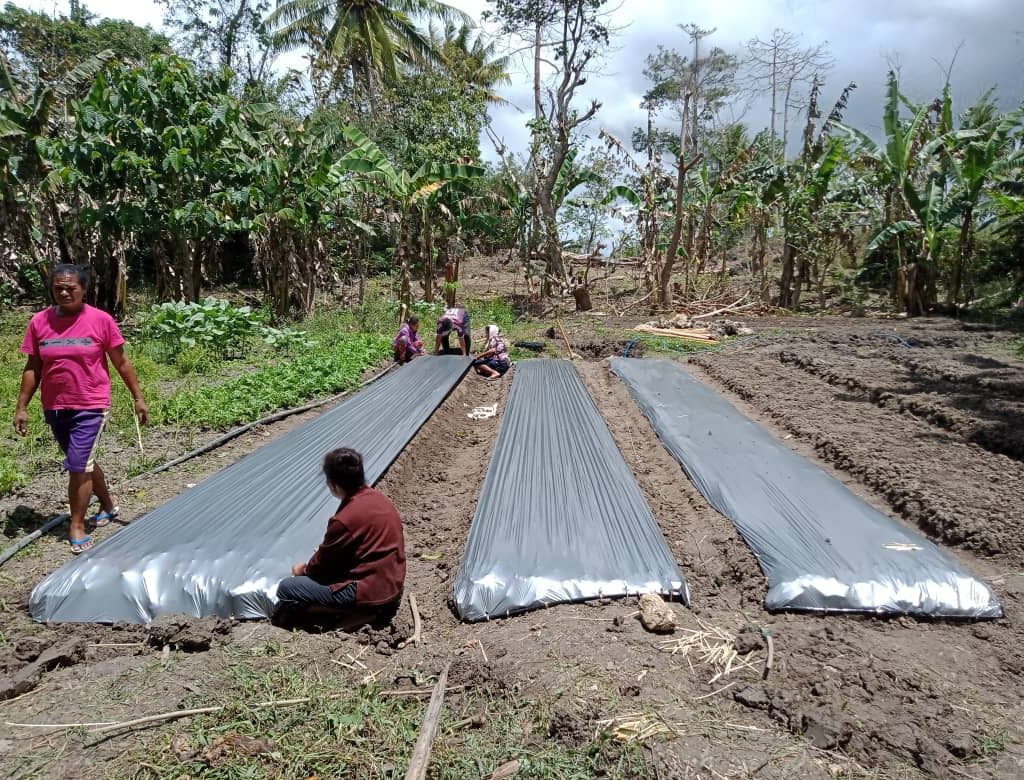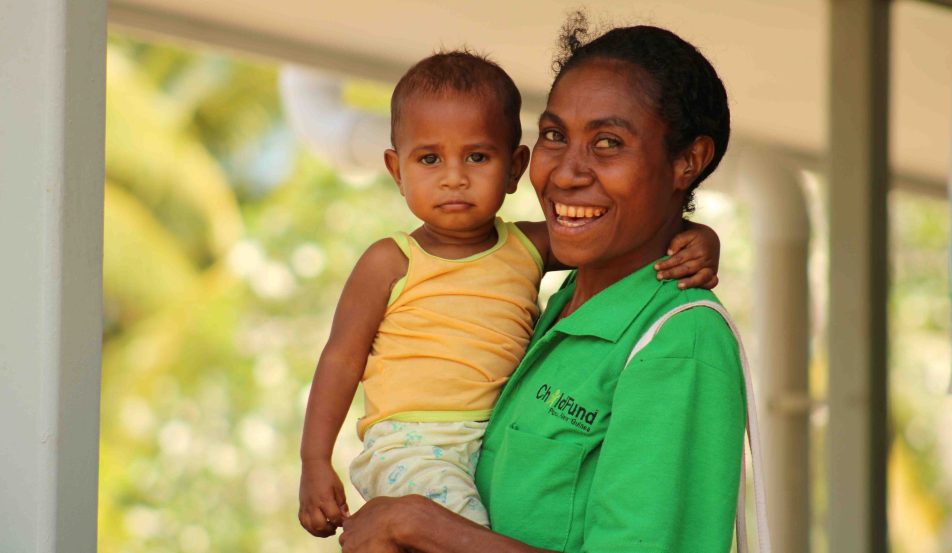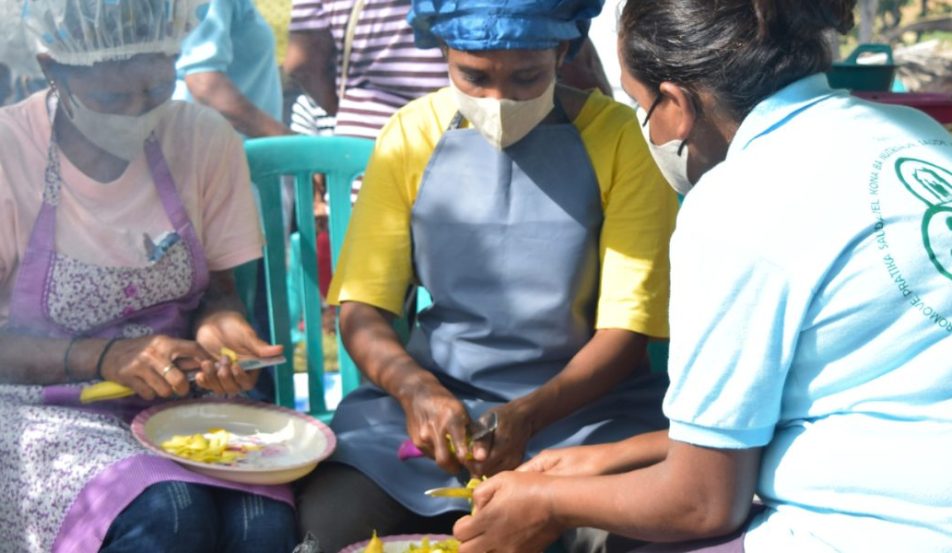COVID leads to new sustainable farming practices in Timor-Leste
ChildFund Timor-Leste is supporting farmers in the Lautem municipality to learn sustainable farming techniques as a part of the COVID-19 economic response plan. Farmers are learning about irrigation, organic pesticides and fertiliser and how to identify different types of diseases.
Five groups of farmers were selected to take part in the program. Working with local partner, Fraterna, ChildFund delivered training over the course of six months in sustainable and resilient farming.
The farmer field school explored drip irrigation, multi-crop production and crop diversification, compost fertiliser making both dry and wet kinds, plastic mulch techniques, soil, pest and disease identification.

After learning about these techniques, the farmers are planting cabbage, lettuce, eggplant, tomato, spinach, water spinach, banana, and papaya trees. Most group members have created their own gardens and are applying what they learned. The project is also supplying farming equipment and helping the farmers install sustainable irrigation systems.
“At the farming school we don’t really do any book work, we put what we learnt directly into practice. We all work together to learn to make compost fertiliser,” said Hermenegildo, a farmer who attended the training in August 2021.
There are, 11 women and three men in this group. All of them attended farmer field school once a week. Now they share the responsibility of growing the vegetables and the crops in a communal area that are then equally divided amongst themselves.
Maria, is also a member of the group. “Before I attended the school, I did not know how to grow vegetables with different methods. But since I came to this training, I learned how to prepare soil and make compost fertiliser and it has helped megain valuable knowledge.”
The group meets regularly to plan and schedule farm work. Hermenegildo hopes that they will be able to harvest extra food to sell in the local markets.
“Our plan for the future is to find more space to grow vegetables. If we have extra vegetables, we’ll sell them,” said Hermenegildo.
By learning these new skills, farmers can yield more sustainable crops to help them be self-sufficient through the dry season and put healthy food on the table for their families. They can also sell the extra vegetables at local markets to supplement the household income.
This project, implemented by ChildFund, is funded by the Australian Humanitarian Partnership (AHP). Along with teaching new farming techniques, the project is distributing food packages, hygiene kits in schools, seed kits and food storage in selected households.

































